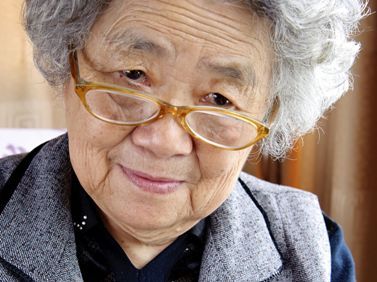
Most mothers who rely on children for care have a preference for which child they turn to in a crisis, confide in or prefer as caregiver, U.S. researchers say.
Research by Megan Gilligan, a Purdue University doctoral student, and Jill Suitor, a professor of sociology, found older mothers were more likely to be stressed when they received help from an adult child not their preferred caregiver.
"When mothers received care from the adult child who was not their first choice, they reported more depressive symptoms, such as sadness, loneliness and sleep disturbances," Suitor said in a statement.
"Although mothers appreciated and acknowledged efforts from caregivers who were not their first choices, these children were less likely to share the mothers' values and to have the personal characteristics important to the mothers in selecting preferred caregivers. This incompatibility can have some strong negative effects."
Receiving care from a mother's preferred child did not affect the mom's psychological well-being, the researchers said.
"We expected having that preferred child care for a parent would make a positive difference, but surprisingly it didn't," Suitor said. "And we also found that mothers' depressive symptoms were higher when they received care from the non-preferred child than when they received no care from their offspring."
The study, published online in The Gerontologist, found being cared for by a non-preferred child was stressful because the alternate caregivers did not possess the social and emotional characteristics mothers expected.
<관련 한글 기사>
“어머니 누가 모실래?” 딱 정해드립니다
어머니들, 자신이 선호하지 않는 자식이 부양할 때 우울해져
대부분의 어머니들은 자녀들 중 자신이 어려운 상황에 처해있을 때 도움을 받고, 이야기를 털어 놓고 싶은 자식이 따로 있다고 미국 연구진이 밝혔다.
펄듀 대학의 박사과정을 밟고 있는 메이건 길리건(Megan Gilligan)과 사회학과 교수 질 수이터(Jill Suitor)는 연구를 통해 어머니의 연령이 높을수록 선호하지 않는 자녀가 자신을 부양할 때 스트레스를 받는다는 사실을 밝혀냈다.
이 논문은 “어머니들은 선호하는 자녀로부터 보살핌을 받지 못할 때, 우울한 증상을 보이는데 슬픔과 외로움, 수면 장애 등의 증세가 나타난다”고 전했다.
수이터는 “어머니들은 비록 자신을 돌봐주기를 기대하는 자식이 아닌 다른 자녀가 도움을 주더라도 고마워하며, 그 노력을 가상히 여긴다. 그러나 그 자녀들은 어머니가 부양 자녀를 선택할 때 중요시 여기는 성품을 갖추고 있지 않은 것으로 보인다. 이러한 불일치는 결국 강한 부정적인 영향을 가져올 수 있다”고 말했다.
그러나 어머니가 원하는 자식의 보살핌을 받는 것 또한 어머니의 정신적 건강과 행복에 영향을 주지는 않았다.
연구진은 “선호하는 자녀가 부모님을 돌볼 때 긍정적인 영향을 불러올 것이라고 기대했지만 놀랍게도 그렇지 않았다”라며 “어머니들의 우울한 증상은 자녀에게서 전혀 도움을 받지 못할 때보다 선호하지 않는 자녀의 보살핌 받을 때 더욱 심해진다는 사실을 발견했다”고 말했다.
이 연구는 온라인상에서 “노인학자(The Gerontologist)”에 발표되었으며 어머니들은 선호하지 않는 자녀가 자신을 돌볼 때 스트레스를 받으며, 이는 그 자녀가 사회적ㆍ감정적으로 어머니가 원하는 성격 및 자질을 가지고 있지 않기 때문이라고 설명했다. (코리아 헤럴드)


















